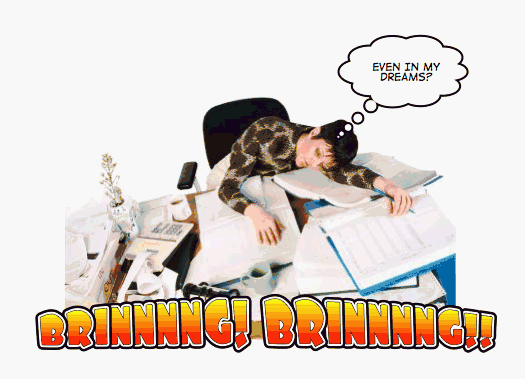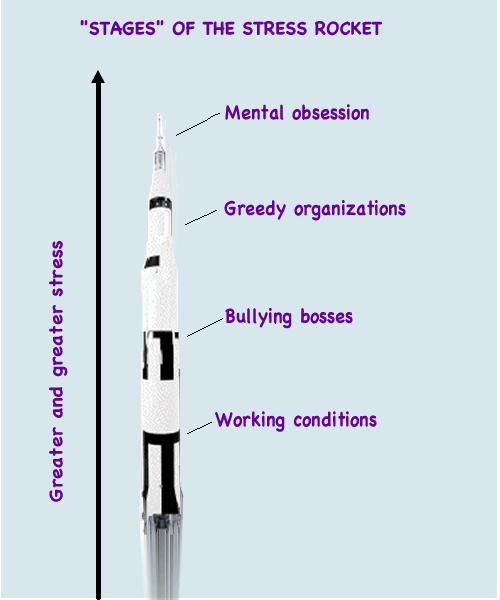Why perfection isn’t a viable goal
Setting extreme targets is a major cause of job-related stress and burnout.
I wonder why so much is posted about how to achieve your goals and so little about choosing them wisely? Many people seem to think that seeking perfection is a good way to achieve outstanding results. In fact, it’s usually the best way to cause yourself frustration and failure—and a great deal of needless stress along the way.People love “how to” advice, and like others to share their experience of finding how to do something important to them. That could explain why advice on achieving goals is far more prevalent than advice on how to choose them. But surely, if the goals themselves are incorrect, uncertain, ill-defined, or unsuitable, knowing how best to achieve them is pointless? That’s especially true if the goal is to achieve something close to perfection.
Conversations about perfection tend to bring out three opposing views, which I’ll call the “fundamentalist,” “literalist,” and “relativist” perspectives:
- The fundamentalist view is that aiming for the top is the best way to motivate yourself, and perfection is the only goal worth pursuing. If you don’t make it, that’s because you didn’t want it enough. It’s an expression of the archetypal American Dream, in which everyone can reach the heights, if only they apply themselves.
- The literalist view is simple; perfection is impossible in human affairs, so it’s not a viable goal. Deciding to aim for it is always going to cause disappointment and frustration. “Good enough” is a better choice.
- The relativist view questions the meaning of perfection and suggests what’s perfect for one person may not be so for another. From this standpoint, you can produce your own definition of perfection. Given that, aiming to achieve it becomes possible, even desirable. How far you want to go is the key to deciding direction and what constitutes achievement.
A great deal of perfectionism is more or less unconscious, based only on the ill-considered assumptions of a competitive society. We’re urged to set our sights on being “the best” or “the winner,” without even considering what that means or what it will demand of us. Sadly, giving in to that thoughtless ideal has made a vast number of people feel that they are losers from the start. In fact, many of them don’t even try, since they know, deep down, that there’s no way they’ll be willing to follow the brutal regime needed to achieve the heights in their chosen field.
Still, many people have grown up with strong tendencies towards perfectionism, so we need to explore how to deal with this and avoid the worst excesses of the perfectionist mindset.
Countering perfectionism
The best way to deal with perfectionist tendencies is to decide in advance how far you want to go, then ask yourself when you want to get there and what you’re prepared to “pay” to do so. Further and sooner demands much more than slower and later. It’s like driving. If you want to cross the USA as quickly as possible, you’ll need a fast car and a big budget for gas. Pottering around your favorite neighborhood at 25 mph won’t strain your wallet so much, and won’t be so stressful either.Another approach is to make sure that you select goals that truly represent your own values and desires. It’s too easy to choose goals thoughtlessly or pick up ready-made ones. There are plenty of people eager to tell you what your goals should be. But unless your goals are truly yours, and right for you and your circumstances, you won’t have the patience, determination, or interest to see them through to achievement, whatever that may take.
Review your goals regularly and weed out any that have slipped in and have an automatic perfectionist slant. How do you know if your current goals aren’t right for you?
- When you forget them, keep changing them, or feel you can’t summon the energy to keep pushing against the obstacles.
- When they cause you more stress and discomfort than you can handle comfortably.
- When they cause the people you care about more stress and unhappiness than they deserve.
- When achieving them is going to demand total devotion to that and nothing else—and you know that you want more than a single-track existence.
- When each achievement costs so much that it brings you as much pain as pleasure.
Do you really want to be the best?
Too many of our ideals about achievement in life are based on sport. That isn’t to decry sport or belittle what sports champions attain to. It’s simply that being “number 1 in the world” in any sport is a short-term endeavor reserved for the young. In most cases, those with the talent get there—if they have the determination and obsessive need to do so—and retire young enough to establish another career afterwards.Being the world’s richest person, or even just the CEO of a major corporation, is going to take the whole of your working life: first to get there and then to stay there. By the time you retire—if you ever truly do —there will be no time left for anything much else.
Perfectionism is, I believe, more often an absence of decision, not a true choice. It’s following the conventional dream without considering whether it’s really yours. That’s why, when it doesn’t work out, a great many of its former adherents find that they have nowhere else to go.
Make every choice conscious
People who fail to make their own choices and simply accept the idea of perfection as a goal soon find that they are facing a lifetime of “failure.” Their former dream becomes a daily nightmare. Of course, that failure isn’t real: it’s just a result of assuming a standard for success that cannot be reached. But it hurts just as much.I believe that much of the reason why so many feel alienated and devalued in today’s world comes from the thoughtless assumptions about success peddled by the media. Only a tiny number of people can be “the best.” Almost an infinite number can be “very good.”
It doesn’t seem to me to be sensible for most people to set perfection as a goal, and not just because no one can attain it in a literal sense. Getting right to the top is going to demand just about everything that you can put into it, and leave no space for anything else in your life.
If that’s what you truly want, then go to it. Take what you desire (if you can) and don’t whine about the price you’ll have to pay. But if you want a balanced life, with time for things other than pursuing a single goal, perfectionism is a very poor companion. It’s best to let it go right away and settle on some more realistic target.
Labels: career choice, priorities, self-preservation, work/life balance















